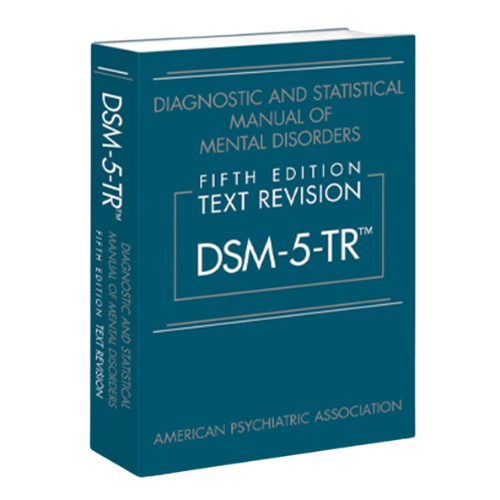but first...

What is a Psychological Disorder?
While there are many interpretations of what a "Disorder" would be, Psychologists use a textbook definition of what it actually is. The American Psychiatric Association's Diagnostic and Statistical Manual of Mental Disorders, or DSM, is an authorative handbook used by healthcare professionals in the US and around the world.
The latest version, DSM-V (also known as DSM-5), defines a psychological disorder as the following*:
1. A behavioral or psychological syndrome or pattern that occurs in an individual
2. The consequences of which are clinically significant distresses (e.g. a painful symptom), or disability (i.e. impairment in one or more important areas of functioning)
3. Must not be merely an expectable response to common stressors and losses (e.g. the loss of a loved one) or a culturally sanctioned response to a particular event (e.g. trance states in religious rituals)
4. That reflects an underlying psychobiological dysfunction.
5. That is not primarily a result of social deviance or conflicts with society.


There's plenty
to delve into...
but first
What is a Psychological Disorder?
While there are many interpretations of what a "Disorder" would be, Psychologists use a textbook definition of what it actually is. The American Psychiatric Association's Diagnostic and Statistical Manual of Mental Disorders, or DSM, is an authorative handbook used by healthcare professionals in the US and around the world.
The latest version, DSM-V (also known as DSM-5), defines a psychological disorder as the following*:
1. A behavioral or psychological syndrome or pattern that occurs in an individual
2. The consequences of which are clinically significant distresses (e.g. a painful symptom), or disability (i.e. impairment in one or more important areas of functioning)
3. Must not be merely an expectable response to common stressors and losses (e.g. the loss of a loved one) or a culturally sanctioned response to a particular event (e.g. trance states in religious rituals)
4. That reflects an underlying psychobiological dysfunction.
5. That is not primarily a result of social deviance or conflicts with society.